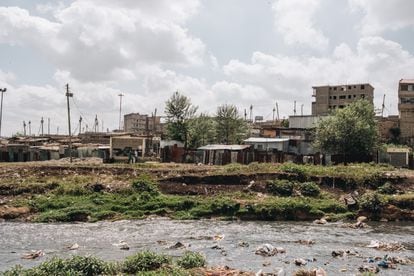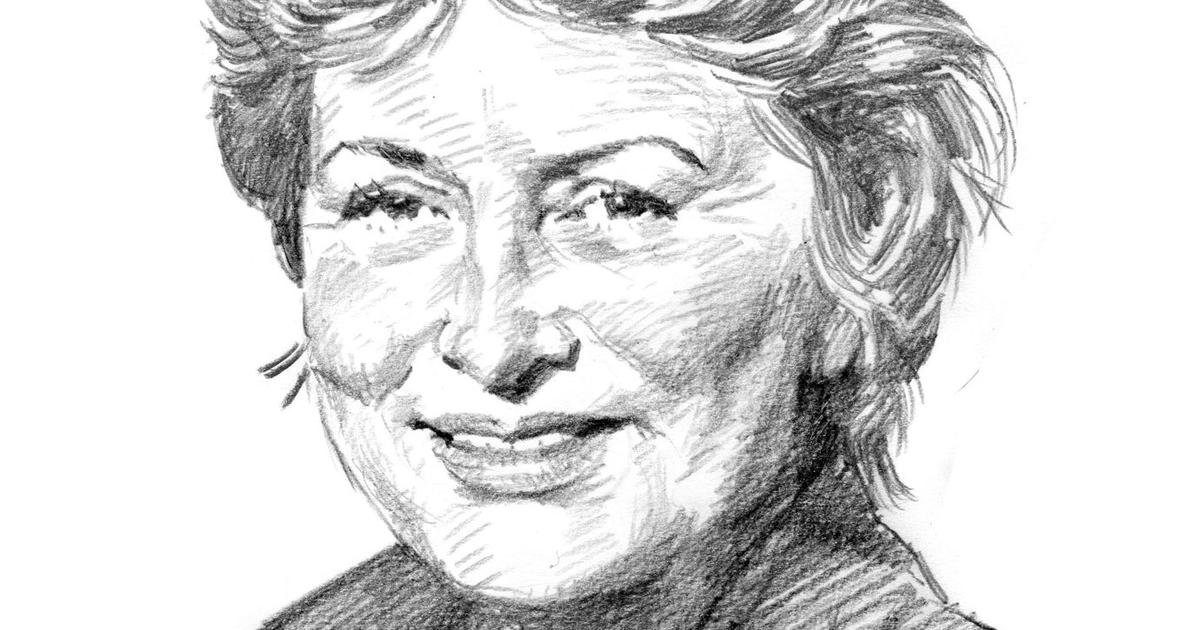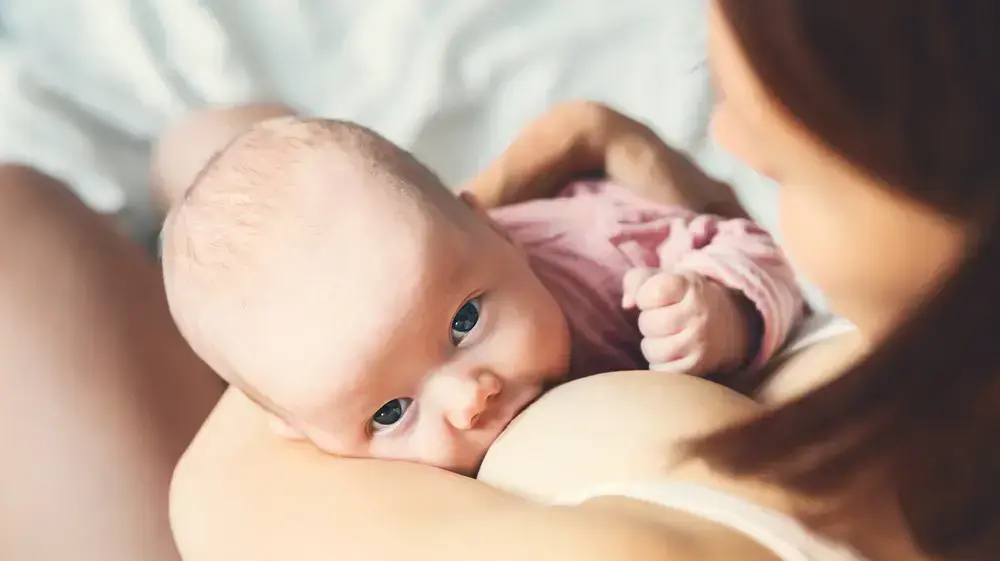Note to readers: EL PAÍS offers openly all the content of the Future Planet section for its daily and global contribution to the 2030 Agenda. If you want to support our journalism,
subscribe here.
One morning in September, while Ashura Mciteka was home, her 10-year-old daughter Ella ran through the door.
"Come see," he exclaimed, pulling his mother by the hand.
Together they unraveled the girl's path along a stony and uneven path from her modest neighborhood in Nairobi, the Kenyan capital, to the spot where the little girl had been playing.
They did not take long to distinguish it: a tangle of lifeless limbs in a puddle of mud.
More information
The odyssey of not having children
The unwanted 'baby boom' caused by the pandemic
Kenyan school allows girls who became pregnant in the pandemic to study with their babies
"Nothing will be like before": invisible survivors of covid-19 in Kenya
Six women from Kenya
Mciteka, 38, has been trained as a volunteer health worker and, as such, she is often called on to make house calls, treat common illnesses and organize the transfer of her neighbors to the hospital.
The woman knew immediately that what she was seeing was a fetus from a recent abortion.
"I'm a mother too, so I know it," she explains a month later over the phone in a deep voice.
In just six months since the pandemic began in March 2020, Mciteka has directly intervened or heard of at least 30 cases of abandoned fetuses or newborns in Dandora, a cluster of apartment blocks and shanty towns near one of the largest illegal dumps in Africa.
But without a centralized national data system to keep track of the total, many go unreported.
Five of them were discovered by a member of his community - a person searching through the garbage, a neighbor and even his own daughter - in the same landfill.
In 2019 he learned of 10 cases.
"Even if I'm not around, they call me," he explains.
"I answer that I agree, that I am far away but I will go see what I can do."
The cost of safely terminating a pregnancy is beyond the reach of many women.
90% of Kenyans live on less than 4.6 euros a day
In Kenya, the problem of abandoned newborns is not new.
Last year,
The Telegraph
reported that within nine months, the Komb Green Solutions volunteer cleanup team had found fetuses and babies while removing plastics and other debris from a stretch of the Nairobi River.
The river is just one of the places where babies are found.
News of children discovered in dumpsters or abandoned by the road make headlines with worrying frequency, and the work of women like Mciteka only gives a glimpse of the scale of the problem.
In Kenya, abortion is illegal unless the woman's life or health is in danger, and according to the Guttmacher Institute, nearly two-thirds of pregnancies in girls between the ages of 15 and 19 are unwanted each year.
Ashura Mciteka acknowledges that she is beginning to feel exhausted: many of the bodies have been discovered near her home.
"It's like you're carrying a load," confesses.Khadija Farah for The Fuller Project
The more than 70 members of Komb Green Solutions have also noticed an increase in the number of dropouts since the COVID-19 outbreak.
Christopher Wairimu, the group's secretary, reports that they have encountered 34 so far, 13 of them since May.
"Some were breathing," adds Debra Ogollah, a 26-year-old volunteer, "but unfortunately they only lived for a few seconds."
The team continues to bury newborns it finds - including eight sets of twins discovered in one year - in a growing makeshift grave by the river.
The local police gave them permission to do so, they clarify.
Several hours north of the capital, in Nyeri County, central Kenya, the news reports the same problem.
In September, John Waruru, an assistant to the local chief, rescued a newborn from a bush along the bank of the Gura River.
In that case, the little girl, who still had the umbilical cord dangling, survived.
"I hear about cases every week," says Nelly Munyasia, head of the Reproductive Health Network Kenya (RHNK), a website with more than 500 medical professionals trained to provide health services.
"At first it was only happening in Nairobi, but it seems to be spreading rapidly."
On this stretch of the Nairobi River, members of Komb Green Solutions often find abandoned fetuses.Khadija Farah for The Fuller Project
Like many countries around the world, Kenya closed schools in March to help contain the spread of the virus.
The move left some 18 million students with little to do for more than six months, and due to mobility restrictions, accessing contraceptives and reproductive health information became more difficult.
The collapse of global pharmaceutical supply chains continues to cause delays and shortages in some Kenyan hospitals.
Several service providers in the Munyasia network report difficulties in accessing long-acting contraceptive methods such as hormonal implants and intrauterine devices (IUDs).
In Kenya, high adolescent pregnancy rates are a long-standing problem, but health care professionals have since mid-March 2020 repeatedly expressing their fear that they will rise during the pandemic.
Although comprehensive national data on the effects of COVID-19 are not yet available - and the statistics are biased at best - community health organizations in the suburbs unofficially claim that teen pregnancies are on the rise.
In addition, in the first seven months of 2020, the Ministry of Health recorded a 35% increase in cases of sexual and gender-based violence compared to the same period of the previous year, especially among girls between 10 and 17 years old.
Debra Ogollah, a member of Komb Green Solutions, looks at the stretch of the Nairobi River where this group, led by several young people, has rehabilitated nearby public spaces.
Volunteers say they often find abandoned fetuses, more often since the pandemic began.Khadija Farah for The Fuller Project
The ministry did not respond to requests for comment.
In September 2020, during a visit to the Kibera suburb, one of its officials, Mercy Mwangangi, recognized that “the same barriers that restrict assistance to sexual and reproductive health in the most normal circumstances continue to exist during the crisis [of the coronavirus], and are often increased ”.
Similarities can be established with the Ebola outbreak in West Africa between 2014 and 2016, when, according to a study by the United Nations Development Program, public health measures, similar to the current ‒quarantine, curfews and school closings - increased risk of girls and women experiencing violence and rape.
In some areas of Sierra Leone, the teenage pregnancy rate increased 65% during the Ebola crisis.
However, the spike in unintended pregnancies only tells half the story, says Elizabeth Okumu, program manager at the Foundation for Indigenous Health and Culture (TICAH).
"We cannot ignore the end result," he says by phone from Nairobi, "which is a high number of unsafe abortions."
Almost 90% of Kenyans live on less than 4.6 euros a day, so the cost of a safe abortion, which is around 175 euros, is unaffordable for many women.
Unsafe abortions are cheaper, but usually you have to go to clandestine healers who prescribe a concoction of dangerous and sometimes deadly chemicals.
Girls receive little help or aftercare and are often left to their own devices.
"We're talking about people who really can't afford it," Okumu continues.
“And now that we've been in [a pandemic] for seven months, it makes sense.
The times agree.
Doctors want safe abortions, which are usually performed between the first and third months.
In this phase there is no fetus.
When we meet fetuses in the community, we know that it is the work of a healer ”.
According to the Guttmacher Institute, each year almost two-thirds of pregnancies of women between 15 and 19 years are unwanted
In Dandora, Mciteka silently covers the aborted baby with an old cloth.
He has informed the local chief, who in turn has called the police to take charge of the situation.
When a fetus of a newborn is found, there is no official procedure.
Sometimes the local chief or the police help, but often it is up to members of the Mciteka community to prepare the grave.
The situation is totally different if the child is still alive.
This tough task is taking its toll, acknowledges Mciteka, who earlier this year founded a 15-member community organization to try to help solve the problem.
She feels burdened and exhausted.
"It's like you're carrying a load," he confesses.
“I am a mother of three children and I have two girls.
I am concerned that we may lose a lot of girls. "
Your fears are not unfounded.
In Dandora, at least two teenagers have died during the pandemic due to abortion complications, Mciteka says.
And when, in October 2020, the Kenyan government announced that schools would be allowed to partially reopen, it was concerned.
In her country, when a teenage girl becomes pregnant before marriage, she continues to face enormous disgrace and in some centers girls are forced to present pregnancy tests.
Mciteka thought there would be an increase in unsafe abortions the weekend before going back to class.
However, he says that what happened was that on a Saturday night in October, a 13-year-old girl hanged herself.
“He left a note,” he recalls, “telling his mother that he was very sorry.
The boyfriend and father said they couldn't help.
Didn't he have anyone to talk to?
Did you think that being pregnant was the end of your life? "
Ashura Mciteka says this is where her 10-year-old daughter Ella found an abandoned fetus while playing with her friends.Khadija Farah for The Fuller Project
After finding the fetus, Ella, Mciteka's daughter, did not leave home for several weeks.
I just wanted to play inside.
Since then, things have improved.
He dares to go out, but does not walk away.
Mciteka is a mother and it is painful for her to see something so sinister happen next to her house, but, in part, that is also the reason why she cannot stop doing what she does.
“You see, I am Muslim, and my religion does not tolerate even safe abortion.
But if we don't, what will become of my children?
What about the girls in the community?
We need to talk about it.
I'm not going to stop doing it ”.
This article was
originally
published
in English
as part of the partnership between The Telegraph, Kenya's Daily Nation and The Fuller Project.
FUTURE PLANET can follow on
,
and
, and subscribe
here
to our 'newsletter'
.















/cloudfront-eu-central-1.images.arcpublishing.com/prisa/EXJQILQR5QI7OMVRTERD7AEZAU.jpg)